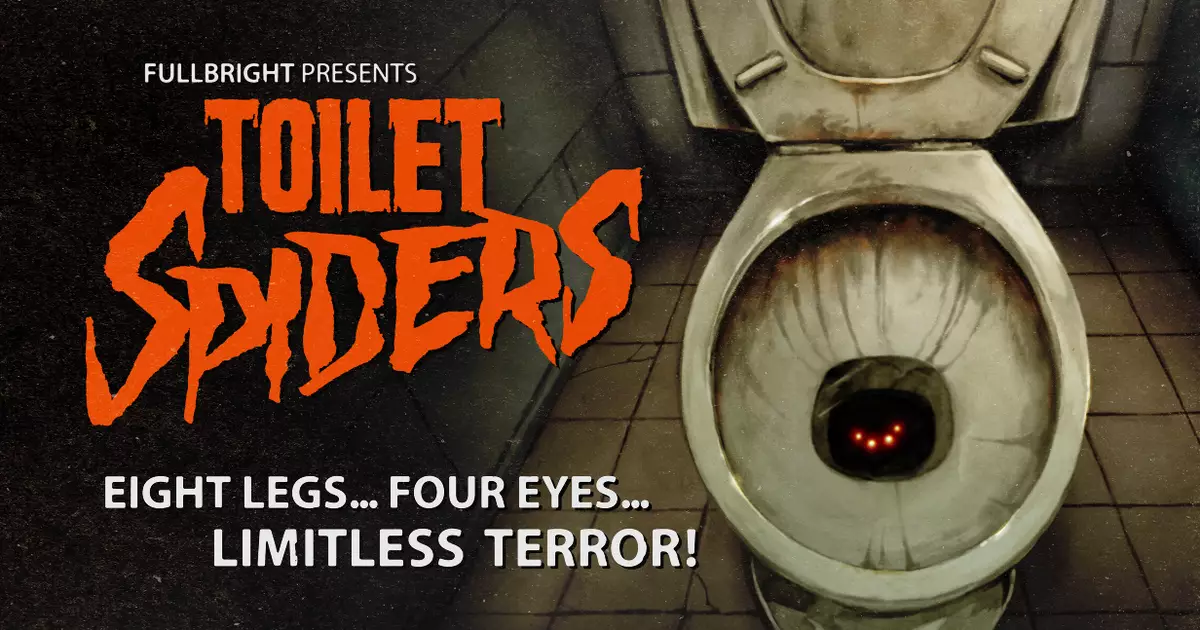Fullbright, once celebrated for its poignant narrative-driven games like *Gone Home* and *Tacoma*, is a studio that has transitioned from emotional exploration of familial bonds and personal identity to the bizarre and unsettling world of *Toilet Spiders*. Historically, Fullbright’s narrative style combined introspective storytelling with minimalistic gameplay, enveloping players in atmospheric environments that invited them to reflect. Yet, as we now peer into their latest offering, it emerges as a decidedly stark departure from those delicate themes, presenting a chaotic mix of survival horror laced with absurdity. This evolution raises critical questions about the studio’s current direction and the nature of creative expression in the wake of controversy.
Transition from Narrative Elegance to Absurd Horror
*Gone Home* epitomizes emotional depth; it draws players into a seemingly ordinary house filled with extraordinary memories. The gentle exploration of teenage turmoil is set against the backdrop of a comforting yet melancholic home, resonating with anyone who has ever grappled with their past. In stark contrast, *Toilet Spiders* thrusts players into the chilling prospect of confronting grotesque monsters lurking amidst crumbling bathrooms, testing their capacity for resource management while encountering radioactive arachnids. The tonal shift is not merely a change in subject matter but signifies broader thematic shifts as well.
In *Toilet Spiders*, players navigate a decrepit Exclusion Zone where survival hinges upon scavenging and decision-making under duress. The game employs the absurdity of gigantic spiders and the implications behind mundane yet terrifying scenarios—like the chilling idea of a spider nestled in one’s toilet—as metaphors for fear of the unknown and domestic unease. Unlike the subtlety of Fullbright’s earlier games, this latest release embraces an overt horror aesthetic that borders on the farcical, forcing players to confront fears in an exaggerated and surreal manner. Any illusions of narrative cohesion are traded for immediate visceral fear, a gamble that has garnered mixed reactions from the audience.
The mechanics of *Toilet Spiders* require players to manage limited resources, a feature not uncommon in survival horror games. However, it starkly deviates from traditional narrative structures by prioritizing gameplay dynamics over storyline. Players become “volunteers” tasked with retrieving crucial items from the very source of their anxiety. The gameplay encourages a balancing act between fear-induced flight and the necessity of confronting one’s dread. This contrasts with the player-centric storytelling of previous titles, such as exploring one’s sexuality or unraveling family drama, which invoked empathy and introspection rather than adrenaline-fueled survival.
It’s crucial to consider the implications of this transition. By packaging *Toilet Spiders* as part of a new anthology series, a notion of “short, strange, lo-fi games” is cultivated, hinting at a new philosophy behind game design at Fullbright. The intent seems to pivot toward immediate experiences meant to evoke sensation rather than deep connection, which could play well in a gaming landscape increasingly fascinated with the bizarre and the surreal.
It’s essential to contextualize this transition against the backdrop of the controversies that have embroiled Fullbright in the last few years. The departure of co-founder Steve Gaynor from the studio following allegations of workplace misconduct raises questions about the future of the company and its vision. While Gaynor’s influence remains evident in *Toilet Spiders*, the resulting ramifications of these allegations create a dichotomy; one of loss and renewal. The question persists: is this absurdity an escape from the reality of a tarnished reputation or a necessary evolution of a creative identity desperately searching for new anchors?
*Toilet Spiders* risks reflecting the artist’s tumultuous inner landscape post-controversy, with the absurd serving as a coping mechanism and perhaps as a means of commentary on isolation and fear—both personal and societal. While this lens invites subjective interpretation, it is cautionary. Outwardly humorous yet eerily unsettling, the game challenges both the player and the developer to confront the space where personal fears intersect with creative output.
Ultimately, *Toilet Spiders* represents a curiously complex chapter in Fullbright’s narrative, shifting from a contemplative experience to one that embraces the bizarre and grotesque. While this new direction may alienate long-time fans of the studio, it may also attract those eager for a more immediate thrill. As the studio navigates its path amidst both creative evolution and fallout from past controversies, one must wonder if this bizarre arachnid horror symbolizes a hopeful beginning or an eventual cul-de-sac in a storied legacy yet to be fully redefined.


Leave a Reply
You must be logged in to post a comment.